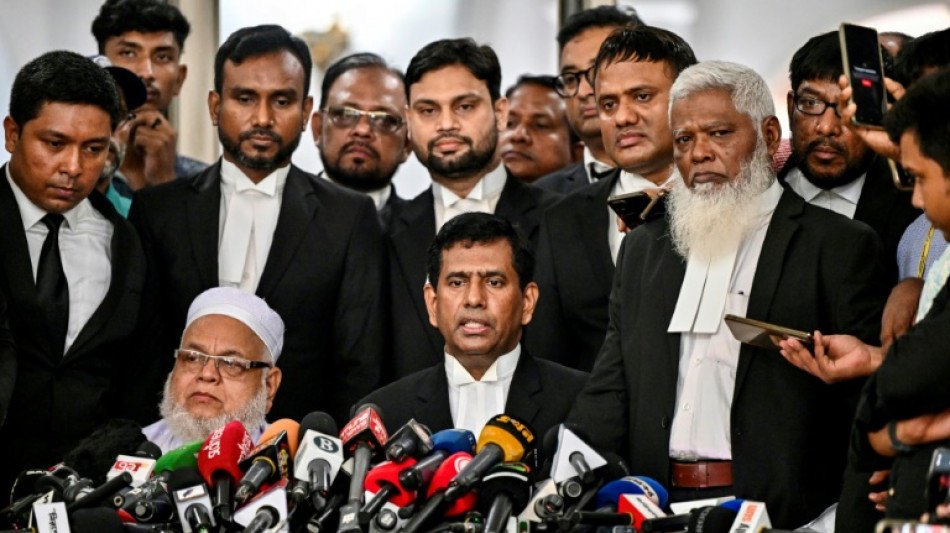
-
 Former player comes out as bisexual in Australian Rules first
Former player comes out as bisexual in Australian Rules first
-
Indian spin great Ashwin calls time on IPL career

-
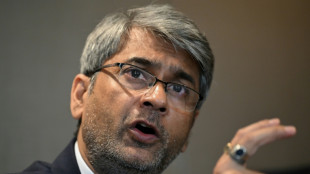 India faces world football ban for second time in three years
India faces world football ban for second time in three years
-
Globetrotter Herzog to get special Venice award
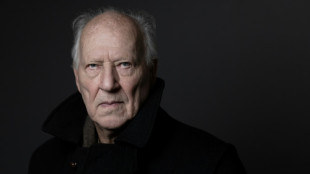
-
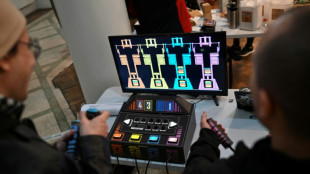 'Old things work': Argentines giving new life to e-waste
'Old things work': Argentines giving new life to e-waste
-
Showtime for Venice Film Festival, with monsters, aliens, Clooney and Roberts
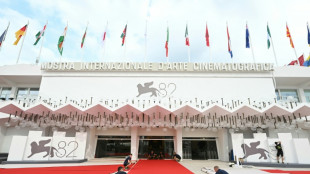
-
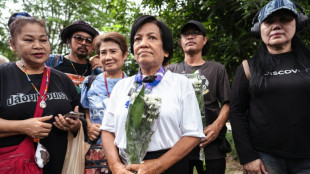 Thai woman jailed for 43 years for lese-majeste freed
Thai woman jailed for 43 years for lese-majeste freed
-
What is swatting? Shooting hoaxes target campuses across US
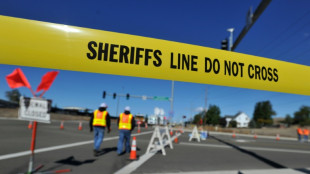
-
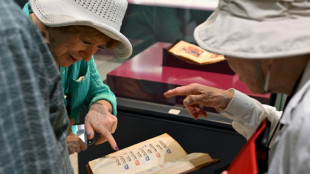 Row over Bosnia's Jewish treasure raising funds for Gaza
Row over Bosnia's Jewish treasure raising funds for Gaza
-
Police search Australian bush for gunman after two officers killed
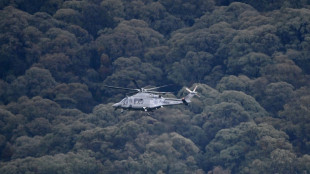
-
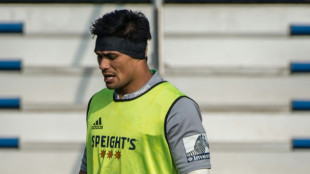 NZ rugby player who suffered multiple concussions dies aged 39
NZ rugby player who suffered multiple concussions dies aged 39
-
Former Australian Rules player comes out as bisexual in first

-
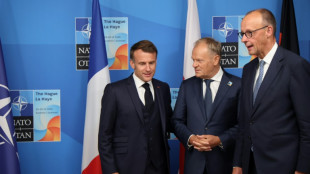 French, German, Polish leaders to visit Moldova in show of force in face of Russia
French, German, Polish leaders to visit Moldova in show of force in face of Russia
-
US tariffs on Indian goods double to 50% over Russian oil purchases

-
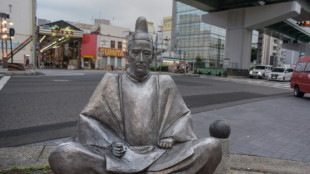 Feudal warlord statue beheaded in Japan
Feudal warlord statue beheaded in Japan
-
Tokyo logs record 10 days of 35C or more
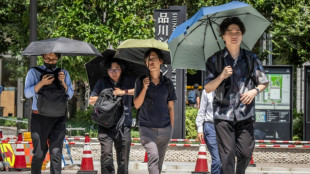
-
 Sinner, Swiatek romp through at US Open as Gauff struggles
Sinner, Swiatek romp through at US Open as Gauff struggles
-
Brazil to face South Korea, Japan in World Cup build-up
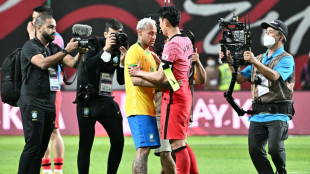
-
 Asian markets diverge with eyes on Nvidia earnings
Asian markets diverge with eyes on Nvidia earnings
-
Osaka out to recapture sparkle at US Open
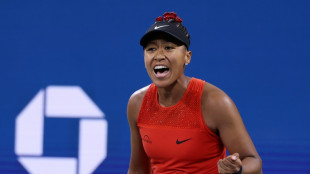
-
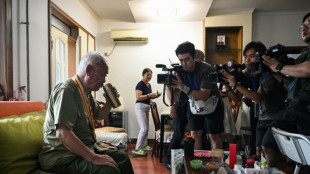 China's rulers push party role before WWII anniversary
China's rulers push party role before WWII anniversary
-
Pakistan's monsoon misery: nature's fury, man's mistake
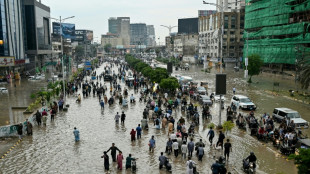
-
 SpaceX answers critics with successful Starship test flight
SpaceX answers critics with successful Starship test flight
-
Nightlife falls silent as Ecuador's narco gangs take charge

-
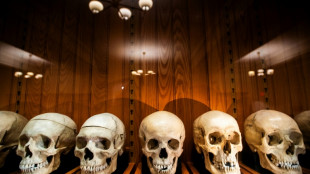 Unnamed skeletons? US museum at center of ethical debate
Unnamed skeletons? US museum at center of ethical debate
-
France returns skull of beheaded king to Madagascar
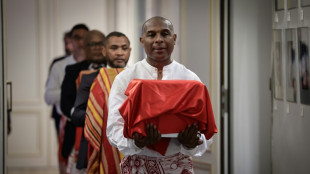
-
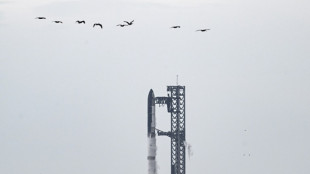 SpaceX's Starship megarocket launches on latest test flight
SpaceX's Starship megarocket launches on latest test flight
-
US restaurant chain Cracker Barrel cracks, revives old logo

-
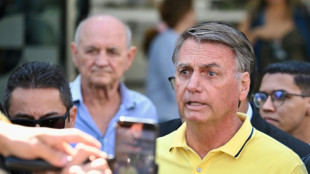 Brazil's Bolsonaro placed under 24-hour watch ahead of coup trial verdict
Brazil's Bolsonaro placed under 24-hour watch ahead of coup trial verdict
-
Taylor-Travis love story: 5 things to know

-
 Sports world congratulates Swift and Kelce on engagement
Sports world congratulates Swift and Kelce on engagement
-
Wolves inflict more woe on West Ham, Leeds crash out League Cup

-
 Venezuela deploys warships, drones as US destroyers draw near
Venezuela deploys warships, drones as US destroyers draw near
-
French political turmoil sends European stocks down, Wall Street edges up
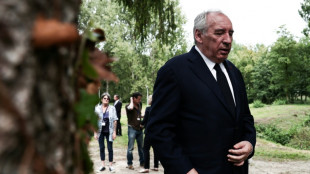
-
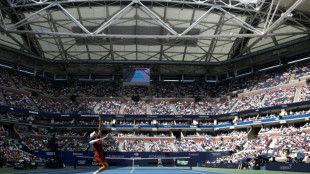 Sinner, Swiatek romp through at US Open
Sinner, Swiatek romp through at US Open
-
Meta to back pro-AI candidates in California

-
 Yankees-Giants set for earliest US MLB opener in 2026 schedule
Yankees-Giants set for earliest US MLB opener in 2026 schedule
-
Messi will be game-day decision for Miami in Leagues Cup semis

-
 'Swiftie' Swiatek swats Arango, talks Taylor & Travis engagement
'Swiftie' Swiatek swats Arango, talks Taylor & Travis engagement
-
New era: Taylor Swift and Travis Kelce announce engagement

-
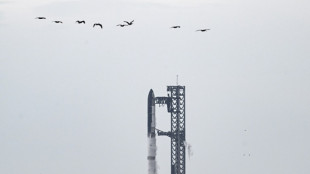 SpaceX set once more for Starship test flight
SpaceX set once more for Starship test flight
-
Sinner begins US Open defence with quick win

-
 Who is Lisa Cook, the Fed governor Trump seeks to fire?
Who is Lisa Cook, the Fed governor Trump seeks to fire?
-
Masters updates qualifying criteria to add six national opens

-
 New era unlocked: Taylor Swift and Travis Kelce announce engagement
New era unlocked: Taylor Swift and Travis Kelce announce engagement
-
Israeli protesters demand hostage deal as cabinet meets
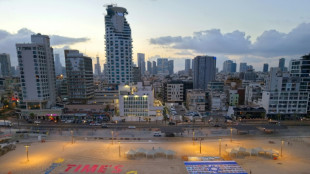
-
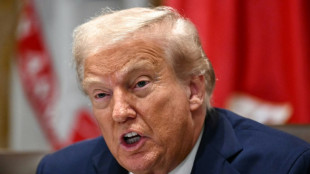 Trump to seek death penalty for murders in US capital
Trump to seek death penalty for murders in US capital
-
Taylor Swift and Travis Kelce announce engagement

-
 Swiatek swats Arango, Sinner launches US Open defence
Swiatek swats Arango, Sinner launches US Open defence
-
Swiatek swats Arango to reach US Open second round


Bangladesh ex-PM accused of 'systematic attack' in deadly protest crackdown
Fugitive former Bangladesh prime minister Sheikh Hasina orchestrated a "systematic attack" that amounted to crimes against humanity in her attempt to crush the uprising that toppled her government, Bangladeshi prosecutors said at the opening of her trial on Sunday.
Up to 1,400 people were killed between July and August 2024 after Hasina's government launched its crackdown, according to the United Nations.
Hasina, 77, fled by helicopter to her old ally India as the student-led uprising ended her 15-year rule and she has defied an extradition order to return to Dhaka.
Bangladesh's International Crimes Tribunal (ICT) is prosecuting former senior figures connected to Hasina's ousted government and her now-banned party, the Awami League.
"Upon scrutinising the evidence, we reached the conclusion that it was a coordinated, widespread and systematic attack," ICT chief prosecutor Mohammad Tajul Islam told the court in his opening speech.
"The accused unleashed all law enforcement agencies and her armed party members to crush the uprising."
Islam lodged five charges each against Hasina and two other officials that included "abetment, incitement, complicity, facilitation, conspiracy, and failure to prevent mass murder during the July uprising".
Prosecutors say such acts are tantamount to "crimes against humanity".
- 'Not an act of vendetta' -
Hasina, who remains in self-imposed exile in India, has rejected the charges as politically motivated.
As well as Hasina, the case includes ex-police chief Chowdhury Abdullah Al Mamun -- who is in custody but did not appear in court on Sunday -- and former interior minister Asaduzzaman Khan Kamal, who is also on the run.
The prosecution of senior figures from Hasina's government is a key demand of several of the political parties now jostling for power. The interim government has vowed to hold elections before June 2026.
The hearing is being broadcast live on state-owned Bangladesh Television.
Prosecutor Islam vowed that the trial would be impartial.
"This is not an act of vendetta but a commitment to the principle that, in a democratic country, there is no room for crimes against humanity," he said.
Investigators have collected video footage, audio clips, Hasina's phone conversations and records of helicopter and drone movements, as well as statements from victims of the crackdown, as part of their probe.
The prosecution argues that Hasina ordered security forces, through directives from the interior ministry and police, to crush the protesters.
"They systematically committed murder, attempted murder, torture, and other inhuman acts," Islam said.
Prosecutors also allege that security forces opened fire from helicopters after Hasina's directives.
They also accused Hasina of ordering the killing of student protester Abu Sayeed, who was shot dead at close range in the northern city of Rangpur on July 16.
He was the first student demonstrator killed in the police crackdown on protests and footage of his last moments was shown repeatedly on Bangladeshi television after Hasina's downfall.
The ICT court opened its first trial connected to Hasina's government on May 25.
In that case, eight police officials face charges of crimes against humanity over the killing of six protesters on August 5, the day that Hasina fled the country.
Four of the officers are in custody and four are being tried in absentia.
The ICT was set up by Hasina in 2009 to investigate crimes committed by the Pakistani army during Bangladesh's war for independence in 1971.
It sentenced numerous prominent political opponents to death and became widely seen as a means for Hasina to eliminate rivals.
Separately on Sunday, the Supreme Court restored the registration of Bangladesh's largest Islamist party, Jamaat-e-Islami, allowing it to take part in elections.
Hasina had banned Jamaat-e-Islami and cracked down on its leaders.
Bangladesh's interim government banned the Awami League in May, pending the outcome of her trial, and those of other party leaders.
T.Ibrahim--SF-PST
